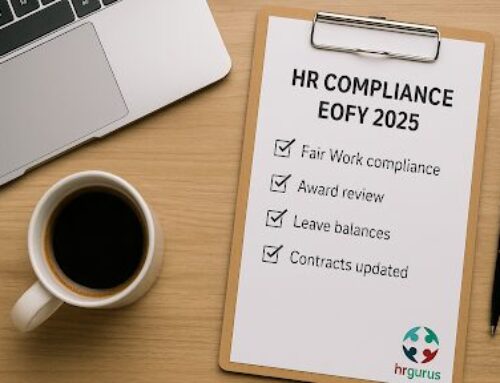Understanding the Right to Disconnect: What SMEs Need to Know
As the digital age marches on, the boundaries between work and personal life blur, especially for small to medium-sized enterprises (SMEs). Constant pings from emails, texts, and calls can turn what should be downtime into yet another workday. But starting this July, Australia is taking a significant step to help restore that balance with the Right to Disconnect law.
What is the Right to Disconnect?
From August 26, 2024 (or August 26, 2025, for small businesses), the Fair Work Act will grant most Australian employees the right to refuse after-hours contact from their employers. This includes emails, calls, and texts unless it’s unreasonable to refuse.
In essence, this means your team can enjoy their evenings and weekends without the nagging guilt of an unread email or a missed call. It’s a move designed to protect their personal time and, importantly, their mental and physical health.
Who’s Covered?
This new law applies to most Australian employees. If an employment agreement already has a stronger right to disconnect, that agreement stands. It’s about ensuring everyone has at least a basic level of protection.
Reasonable After-Hours Contact
Now, let’s be clear: there are some instances where after-hours contact is reasonable. Emergencies, for instance. The Fair Work Act outlines factors to consider:
- The reason for the contact: Is it urgent?
- The method of contact: An email might be less intrusive than a phone call.
- Payment: Is the employee compensated for being on call?
- Role responsibilities: Some positions inherently require more flexibility.
- Personal circumstances: Family and caregiving duties play a role.
FAQs for SME Leaders
- How do I implement the Right to Disconnect?
Start with a conversation. Discuss the new rights with your team and how they apply to your specific business. Clear communication can prevent misunderstandings. We also recommend updating your contracts of employment and policies to include these new provisions and be very clear about start and finish times and reasonable additional overtime. More on this below.
- Can employees refuse all after-hours contact?
No, the refusal must be reasonable. Emergencies or critical issues might still necessitate after-hours communication.
- What if an employee ignores a critical after-hours call?
If the refusal is unreasonable, there could be consequences. However, the aim is to find a balance. For tricky situations, consulting with a HR Consultant or employment lawyer can help.
- How can I manage expectations?
Set clear boundaries and expectations around after-hours work. Use tools like email autoresponders to manage contact during off-hours.
Do’s and Don’ts for SME Leaders
Do’s:
- Communicate Clearly: Discuss the Right to Disconnect with your team. Make sure everyone understands their rights and responsibilities.
- Set Boundaries: Define what constitutes reasonable after-hours contact in your business.
- Respect Personal Time: Encourage your team to switch off and recharge.
- Use Tools Wisely: Automate responses to manage after-hours communications efficiently.
Don’ts:
- Ignore the Law: This legislation is there to protect workers’ well-being. Compliance isn’t optional.
- Overload Your Team: Respect their right to disconnect. It’s better for morale and productivity.
- Be Vague: Ambiguity breeds confusion. Be clear about expectations and boundaries.
- Forget Individual Circumstances: Flexibility can go a long way. Recognise the unique needs of your employees.
Moving Forward
Embracing the Right to Disconnect is more than just following a law; it’s about fostering a healthier, more balanced work environment. As a leader in the SME space, you have the opportunity to set the tone. Show your team that you value their well-being as much as their work. With clear communication and thoughtful planning, you can navigate this new terrain smoothly, ensuring that everyone benefits.
So, gear up for July! It’s time to let your team truly switch off after hours and come back to work refreshed and ready to contribute their best.
Written by Emily Jaksch
Continue Reading
Get a personal consultation.
Call us today at 1300 959 560.
Here in HR Gurus. We make HR simple because it should be.





